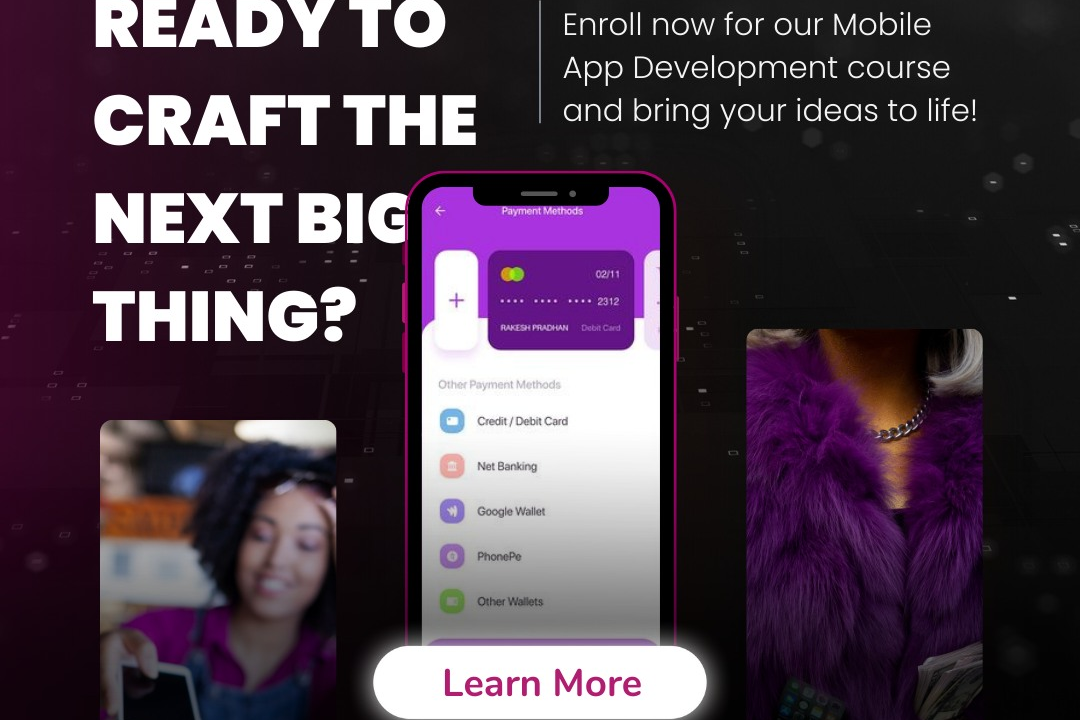iOS App Development on Windows
iOS App Development: A Guide for Windows Users
iOS App Development on Windows
Developing iOS apps on a Windows device is not officially supported by Apple as Xcode, the official IDE for iOS app development, is only available on macOS. However, developers can use workarounds like virtual machines, cloud-based services, or cross-platform development tools to create iOS apps on a Windows machine. These methods may have limitations in terms of performance, compatibility, and access to certain features, but can still be used to develop and test iOS applications to some extent. It's important for developers to be aware of the restrictions and challenges involved in this process and consider using a macOS device for a smoother and more efficient iOS app development experience.
To Download Our Brochure: https://www.justacademy.co/download-brochure-for-free
Message us for more information: +91 9987184296
1 - Introduction to iOS App Development on Windows
iOS app development is typically done on macOS using Xcode, Apple's official integrated development environment (IDE). However, developers can explore alternative methods to develop iOS apps on Windows systems.
2) Virtual Machines
Students can set up virtual machines running macOS on their Windows PCs using virtualization software like VMWare or VirtualBox. This allows them to install Xcode and develop iOS apps as if they were on a macOS environment.
3) Remote Mac Services
Some platforms offer remote Mac services, where users can remotely access a macOS machine over the internet from their Windows PCs. This allows students to use Xcode and develop iOS apps without needing a physical Mac computer.
4) Cross Platform Development Tools
Students can leverage cross platform development tools like Xamarin, Flutter, or React Native to build iOS apps on Windows. These tools allow developers to write code once and deploy it for multiple platforms, including iOS.
5) Online Emulators
Online emulators, such as App.io or Appetize.io, enable students to test their iOS apps directly in a web browser on their Windows machines. While not ideal for full development, they can be useful for testing and quick demos.
6) Hackintosh
Building a “Hackintosh,” or a non Apple computer running macOS, is a more advanced option for students. This requires specific hardware components and technical skills to set up, but it can provide a native macOS environment for iOS app development on Windows.
7) App Development Courses
Students can enroll in online courses or bootcamps that specifically focus on iOS app development for Windows users. These programs offer comprehensive training on setting up development environments, coding in Swift, designing user interfaces, and deploying apps to the App Store.
8) Community Forums and Support
Engaging with online community forums, such as Stack Overflow, Reddit, or Apple Developer Forums, can help students troubleshoot issues, seek advice, and learn from experienced iOS developers who have faced similar challenges of developing on Windows.
9) Mock Interviews and Projects
Training programs for iOS app development on Windows can include mock interviews and hands on projects to simulate real world scenarios. This practical experience helps students apply their skills, collaborate with peers, and build a portfolio of iOS apps.
10) App Store Submission Guidelines
It is essential for students to understand Apple's strict guidelines for submitting apps to the App Store. Training programs should cover topics like app review process, App Store policies, and best practices for ensuring app approval and user engagement.
11) Networking Opportunities
Offering networking opportunities through workshops, meetups, or online events can help students connect with industry professionals, potential employers, and fellow developers in the iOS app development community.
12) Continuous Learning and Updates
iOS app development is constantly evolving with new updates, features, and technologies. Training programs should emphasize the importance of ongoing learning and staying up to date with the latest trends in iOS development.
13) Soft Skills Development
In addition to technical skills, students should also develop soft skills like communication, problem solving, and teamwork. Training programs can incorporate activities that promote collaboration, critical thinking, and effective project management in iOS app development.
14) Career Guidance
Providing career guidance on job opportunities, resume building, interview preparation, and freelance possibilities in iOS app development can empower students to pursue successful careers in the field.
15) Capstone Projects and Certifications
Concluding the training program with capstone projects and certifications can validate students' skills and knowledge in iOS app development on Windows. These projects showcase their abilities to design, develop, and deploy iOS apps, enhancing their credibility in the industry.
Browse our course links : https://www.justacademy.co/all-courses
To Join our FREE DEMO Session: Click Here
Contact Us for more info:
Flutter projects
iOS Training in Shrirampur
Android Mobile Development Course
iOS Training in Jharsuguda
Difference between final and finally in Java 2024











